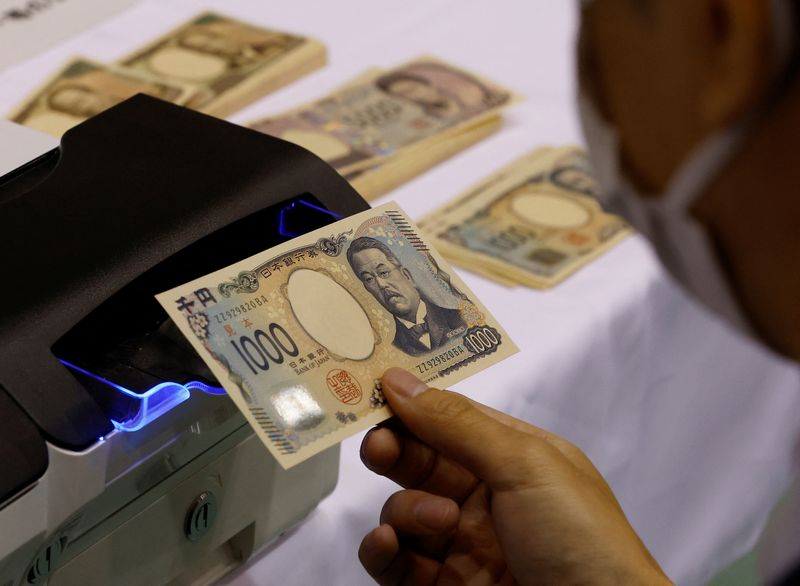TOKYO (Reuters) – Japanese Finance Minister Shunichi Suzuki said on Friday there were “speculative” moves behind recent yen declines, suggesting authorities remained on stand-by to intervene in the market to address any excessive falls in the currency.
Suzuki also said authorities were watching the speed, rather than the levels, of the yen’s moves. He repeated Tokyo’s recent warnings that authorities would not rule out any steps to respond to disorderly currency moves.
“Given how the yen’s declines are continuing despite the interest rate gap narrowing, albeit modestly, suggest that there are speculative moves in the market,” Suzuki told parliament.
“It’s important for currency rates to move stably, reflecting fundamentals. Excessive volatility is undesirable, and we are watching market moves from this perspective,” he said.
With the BOJ’s policy rate still stuck around zero, expectations the gap between U.S. and Japanese interest rates will remain wide are giving traders an excuse to keep selling yen, analysts say.
The yen has been on a downtrend since the Bank of Japan’s decision last week to end eight years of negative interest rates and roll back its radical stimulus programme.
The Japanese currency hit a 34-year low against the dollar at 151.975 this week, as markets interpreted the BOJ’s dovish guidance as suggesting that rate hikes will be slow in forthcoming. It has recouped some losses to stand at 151.35 on Friday.
Japanese policymakers have historically favoured a weak yen as it helps boost profits at the country’s big manufacturers.
But the yen’s sharp declines have recently added to headaches for Tokyo by inflating the cost of raw material imports, hurting consumption and retail profits.
Click Here to Read the Full Original Article at All News…


